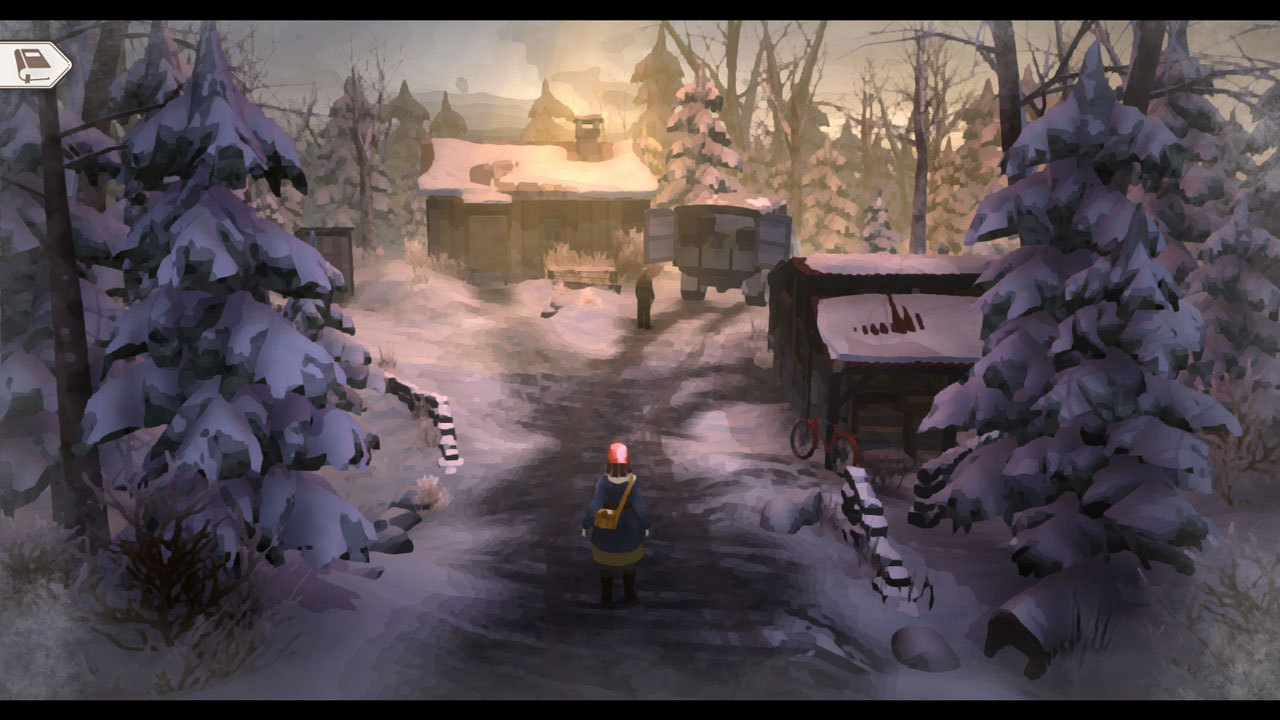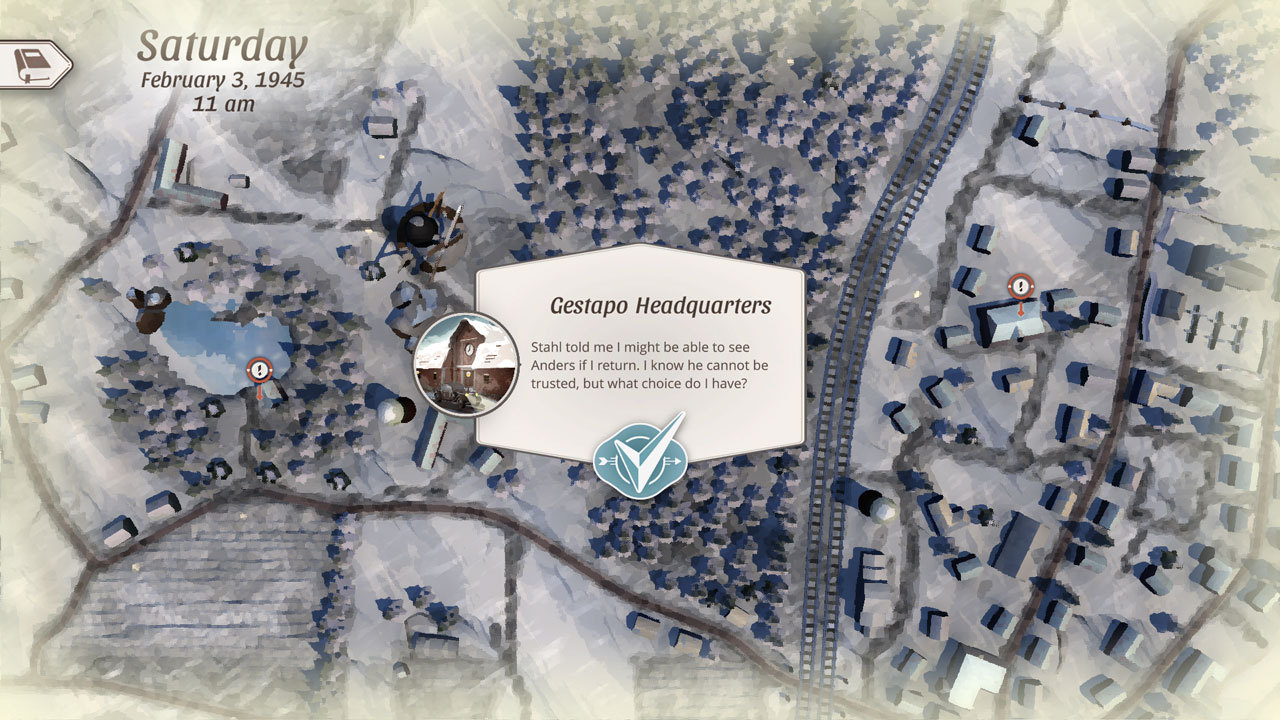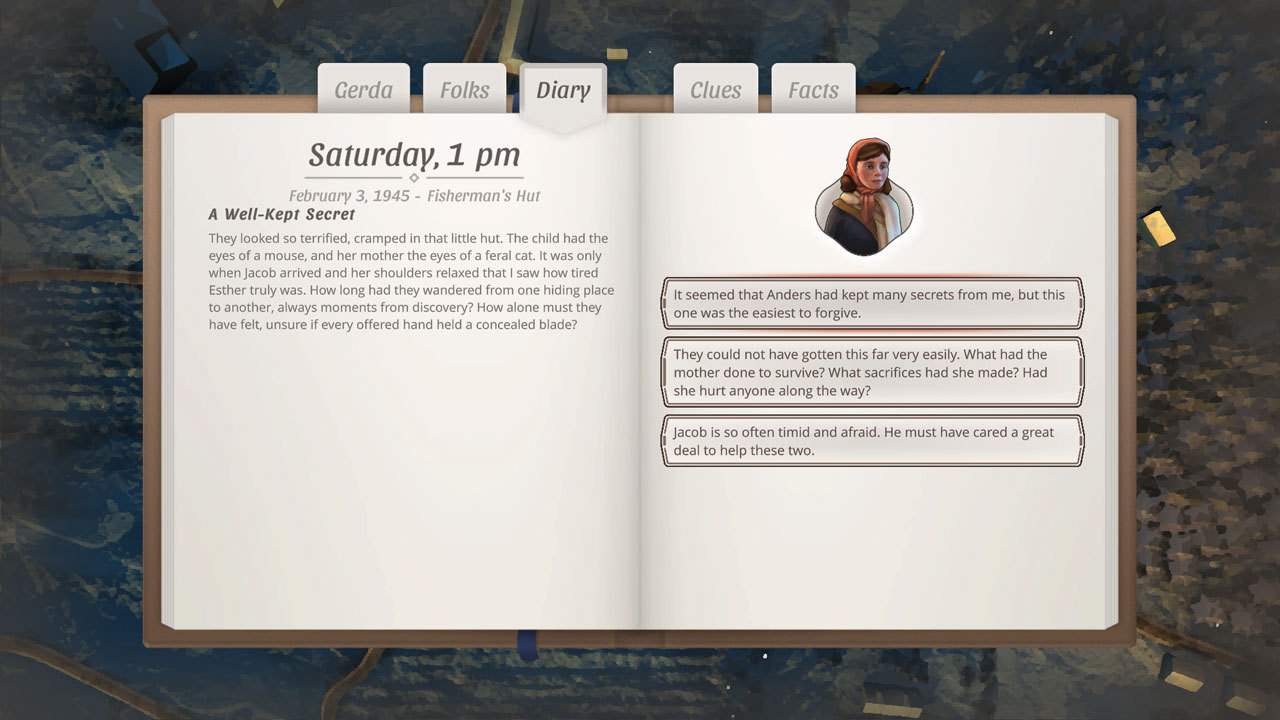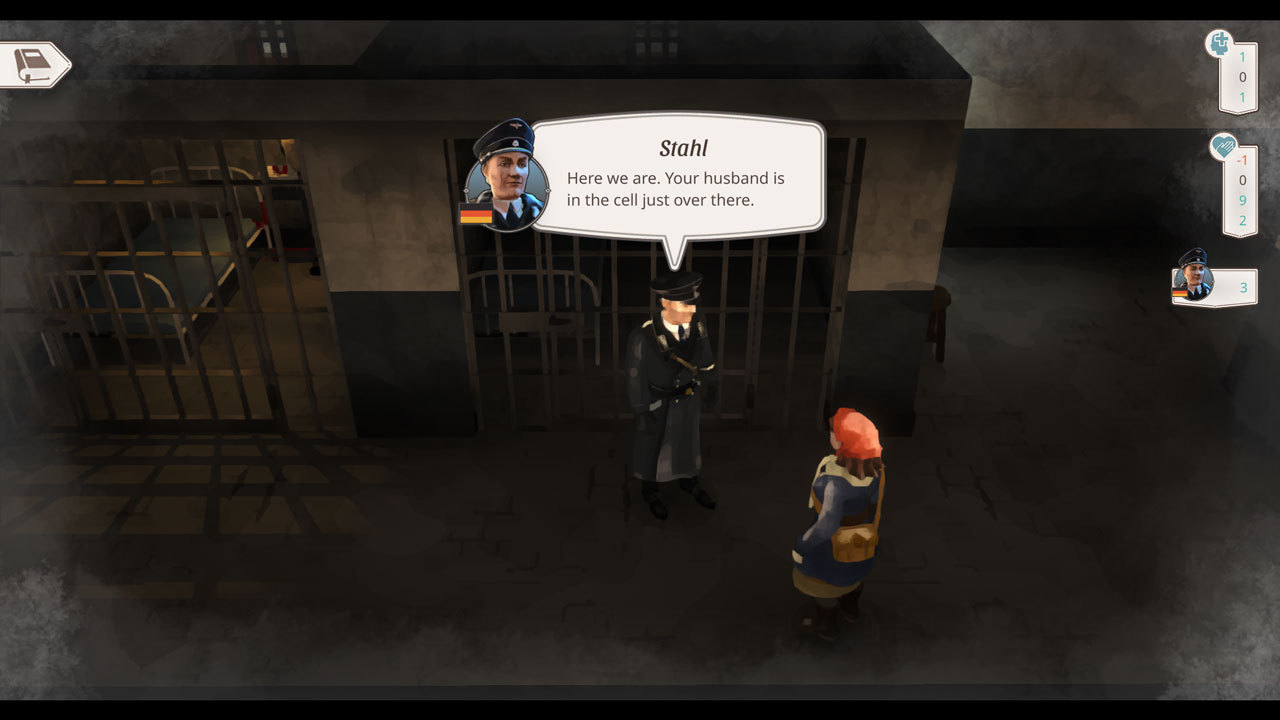Gerda: A Flame in Winter PC Review
A World War 2 game that tells a story about citizens, not soldiers.
Reviewed by LCLupus on Sep 01, 2022
Gerda: A Flame in Winter is the latest game by PortaPlay, a company that doesn’t often make serious historical pieces, but this is certainly a great first attempt. The game is essentially a point-and-click adventure game, but more in the Telltale vein rather than the LucasArts vein, as there is a strong focus on dialogue, interpersonal relationships, and responsivity to the player’s choices made.
Gerda: A Flame in Winter is set during World War 2, but unlike your traditional WWII games, it isn’t about the camaraderie of a soldier’s life or the difficulties that faced those who had to march into war. This experience is instead centered around regular people—the ordinary people who get caught up in war. If you want something similar in theme, you can look at games like This War of Mine or even Valiant Hearts: The Great War. Games that are about war but that do not glorify it in any way.

Gerda: A Flame in Winter is about a small Danish village near the German-Danish border, so the population you interact with is a mix of German and Dane. As a representation of this town-wide conflict, the main character is of German and Danish descent. This factors into her life within this world because the Nazis have occupied her small village. This is no longer your home; it’s run by a foreign fascist power.
The game and the narrative cannot be disconnected from one another as they are intrinsically linked together. Gerda: A Flame in Winter is a narrative game, and if you don’t want a game that’s mostly dialogue, sadness, and morally grey decisions, then this game will not be for you. However, it is quite a reactive game, so it is intended to be played more than once to see new and different outcomes. Some events cannot be done if others have been done, certain events will irrevocably change things for you, and the people around you may not even want to talk to you any longer if you become too friendly with certain groups.
Gerda: A Flame in Winter is a game about choices. And without spoiling too much of the plot, let’s dive into how the game plays. At the beginning of every section, you are shown an overview map of the town, and you usually get several choices of where you want to go. This will determine the course of things after that, as you cannot go everywhere. Each of these “levels” to use a crude term here, gives you some aspect of the story that will inform what is to come later.

Each of these levels contains people, and this is where the primary gameplay comes in. People need to be spoken to in a strategic sense as there is a point allocation system that tracks how positively or negatively individual people either like or don’t like you. Furthermore, the decisions you make in and out of dialogue also affect how several groups see you: Germans and Danes in town, the Occupation, and the Resistance.
You interact with each of these groups as you progress through Gerda: A Flame in Winter. Each group has its own wants and needs, and when you fulfill the desires of one, you may not be able to fulfill the desires of others. So, while you may want to side with the Resistance, you do still live in town, so getting on the bad side of the Occupation, i.e., the Nazis, isn’t a good idea either. You’re not B.J. Blazkowicz; you’re a twenty-something Danish nurse with a husband, a family, and a job. This means that while you may not want to get buddy-buddy with literal Nazis, you may need to at times. You may need their support for certain in-game events that would be a spoiler to reveal.
Now, when it comes to the dialogue system itself in Gerda: A Flame in Winter, it’s quite an interesting one and reveals some light RPG mechanics. On every level, you can potentially gain secrets or find items that can be used during dialogue, such as finding a teddy early in the game and giving it to a scared child several levels later. Still, the more interesting thing is the mental energy system.

The mental energy system is a system of points that you accumulate and spend, like currency, during dialogue. You gain these points at the end of every level, but you only gain one at a time. These points come in three types: compassion, insight, and wit. So, if you only have compassion and insight points, you will be locked off to dialogue requiring wit. This shapes the way you’re able to respond to the characters around you.
As you use these mental energies, items, and secrets, you shape the narrative around you and push it in different directions with some divergent paths to tread. To further emphasize dialogue in Gerda: A Flame in Winter, the game also occasionally uses a few other things. For instance, some dialogue choices might not work out and are determined by a dice roll, such as anything that could be risky to attempt, like leaning in to speak to a prisoner when a Gestapo officer is looking in the other direction or trying to convince an angry person to help someone when there’s no financial incentive for them to do so.
The game also likes to, occasionally, throw timed segments at you. During these segments, you may need to try and gather certain information during an officer’s phone call in another room or desperately try to find some medicine before the Nazis drag someone away while they’re still bleeding. These are the choices you’ll make in Gerda: A Flame in Winter. This isn’t a game where moral choices are easy. It’s the kind of game that might give you one bottle of medicine while telling you that you can only give it to one of three different people who need it.

One of the only areas that Gerda: A Flame in Winter’s dialogue system can be critiqued is the same critique you can make about the morality system in Fallout 3. If you want to get some information from the Nazis by pretending to be their ally, you’ll gain a reputation with the Occupation because you’re being friendly with them. But somehow, even though this is a confidential conversation, the Resistance somehow knows about it, and you lose reputation with them because they obviously don’t like the Occupation. So, it doesn’t really let you consistently lie. And this is the kind of game where lying would be a great tool to have, seeing as you’re dealing with the literal Nazis.
The only other thing worth mentioning is that the game is not the prettiest thing in the world. The characters look a bit like PS2 models at times, and there are occasionally some visual and animation hiccups, such as one instance in which a woman literally floated across the ground rather than walking. But these can be easily forgiven.
What can’t be forgiven as easily is that Gerda: A Flame in Winter forces you to walk everywhere. Running is highly contextual, and the game generally has you trudge around very slowly. In terms of the game’s tone, that makes sense, but from a gameplay perspective, it can sometimes be a little too slow. However, these are all ultimately forgivable issues.
In conclusion, Gerda: A Flame in Winter is a great experience that simply isn’t usually told. The game isn’t particularly long, at about 5-6 hours, but it is intended to be played more than once to see the alternate possibilities. It also shows a side of the War that isn’t shown very often because it isn’t glitzy and glamorous. But real civilians lived through World War 2, and their stories should also be told.
Justin van Huyssteen (@LC_Lupus)
Senior Editor, NoobFeed
Contributor, NoobFeed
Verdict
75
Related News
No Data.

